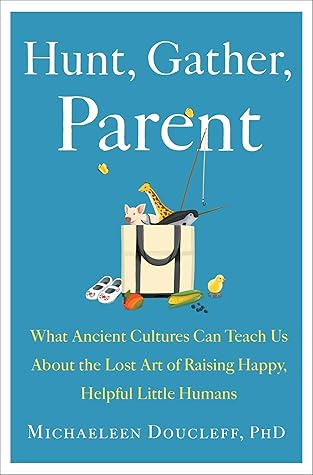More on this book
Community
Kindle Notes & Highlights
Read between
February 13 - February 18, 2025
“You are a working member of the family who helps and contributes however they can.”
Toss out the idea that you have to “entertain” the baby with toys and other “enrichment” devices. Your daily chores are more than enough entertainment.
We’re training the child to cooperate, not to obey the parent. Part of working together is accepting a child’s preference when they choose not to help.
The parents don’t constantly force the child to be independent or accelerate the process of becoming independent. Instead, parents give kids the room and time to develop at their own speeds.
Togetherness is a circle of love that surrounds the child, no matter where they go.
“When children are little, it doesn’t help to raise your voice, or get angry at them. It will just make your own heart rate go up.”
“Getting angry isn’t going to solve your problem. It only stops communication between the child and the mom.”
Because, in the end, yelling doesn’t teach children to behave. Instead, it teaches them to get angry. “We are training them to yell when they get upset and that yelling solves problems,” she says.
So to help a child learn emotional regulation, the number one thing parents can do is learn to regulate their own emotions.
What if we assume their motivations are kind and good, and it’s just that their execution needs some improvement?
“If a little child doesn’t listen, it’s because she is too young to understand. She is not ready for the lesson.”
Either way, the physicality tool is a way of showing a child that they’re safe and loved, and that there’s a calmer—and stronger—person taking care of them.
Remind yourself that children don’t have the emotional skills that we adults do. We need to show them how calmness works, over and over again, before we can expect them to master the concept.
With storytelling, I feel like I can finally speak Rosy’s language.
The difference has to do with connectivity. Independence means not needing or not being influenced by others. An independent child operates like a solitary planet. They’re disconnected. They have no obligations to their family or their community around them. And in return, the family and community have no expectations of the child.
These children are not solitary planets. They belong to a solar system, circling around each other, feeling and stabilized by each other’s gravity.
Basically any time the women do a task, they ask Belie to help and contribute in some small way.
By sprinkling these requests into daily activities, parents train the children to orient their activities and attention toward others,
When you feel like you have influence over your immediate situation and the direction of your life, stress goes down, the brain relaxes, and life gets easier.


